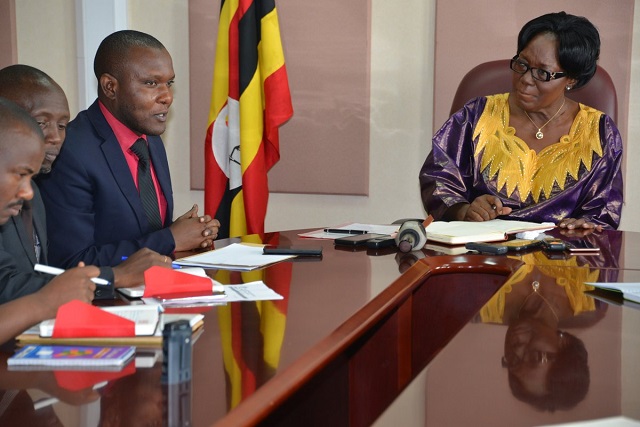
The proposal was presented by Uganda Parliamentary Press Association President (UPPA), Moses Mulondo to the Speaker Rebecca Kadaga on Thursday.
Mulondo told Kadaga that since journalists grapple with low pay, parliament can pay each accredited journalist a top-up allowance every month in a bid to improve their welfare.
However, the proposal has sparked heated debates on social media and in several journalist fora, with some complaining that the journalists will lose their credibility and moral authority to question actions and misdeeds of legislators.
At Parliament, some journalists led by Sadab Kitatta Kaaya and Prisca Wanyenya are concerned about the aftermath of the proposal, regardless of whether the Parliamentary Commission approves or rejects it.
Wanyenya says that the UPPA leadership must be held accountable for presenting the proposal to Kadaga without consulting other members. She adds that the proposal has now tainted the image of the profession and it will make it difficult for MPs to look at journalists as objective and independent in parliamentary reporting.
Some, however, support the move, saying that parliament pays some non-staff a top-up monthly allowance in recognition for their services and contribution.
Dedan Kimathi says that paying journalists a monthly allowance is not a big issue, considering that even religious leaders who should uphold the highest moral standards are seen asking and accepting tokens and items procured using taxpayers’ money.
Timothy Sibasi says that it is ironic that media practitioners are against the proposal for parliament to pay accredited journalists and yet it will improve their welfare.
Sibasi says that Mulondo should be commended for pushing for better welfare and remuneration of journalists, something that previous leaders probably failed to do at parliament.
Following the heated debate on the proposal, Mulondo on Friday issued a press release defending the proposal.
He notes that “since every dark cloud has a silver lining, this debate on the social media is good because it has created an opportunity to have a public debate on the welfare for journalists and the state of the media industry in the country.”
He says that the debate should be about the extremely poor remuneration for journalists who are providing a very important public good yet they cannot afford the basics of life.
“And as we debate this, let us also not forget the soldiers and police officers who are paid only sh300, 000 per month yet they risk their lives to protect us. They are voiceless and suffering quietly.
Mulondo recognises that the due to the economic meltdown for the last four years, most media houses including the big media houses are struggling to remunerate journalists as desired. He, however, noted that the situation is worse for freelancers who are paid per story published or broadcast, even in the big media houses.
“Even when one has been very hardworking throughout the month, it is a common occurrence for someone to find as low as 80,000 on his/her bank account as their monthly earning.”
Mulondo now believes that parliament and the government can address the general poor remuneration for journalists in the country.
*****
URN
 The Independent Uganda: You get the Truth we Pay the Price
The Independent Uganda: You get the Truth we Pay the Price





